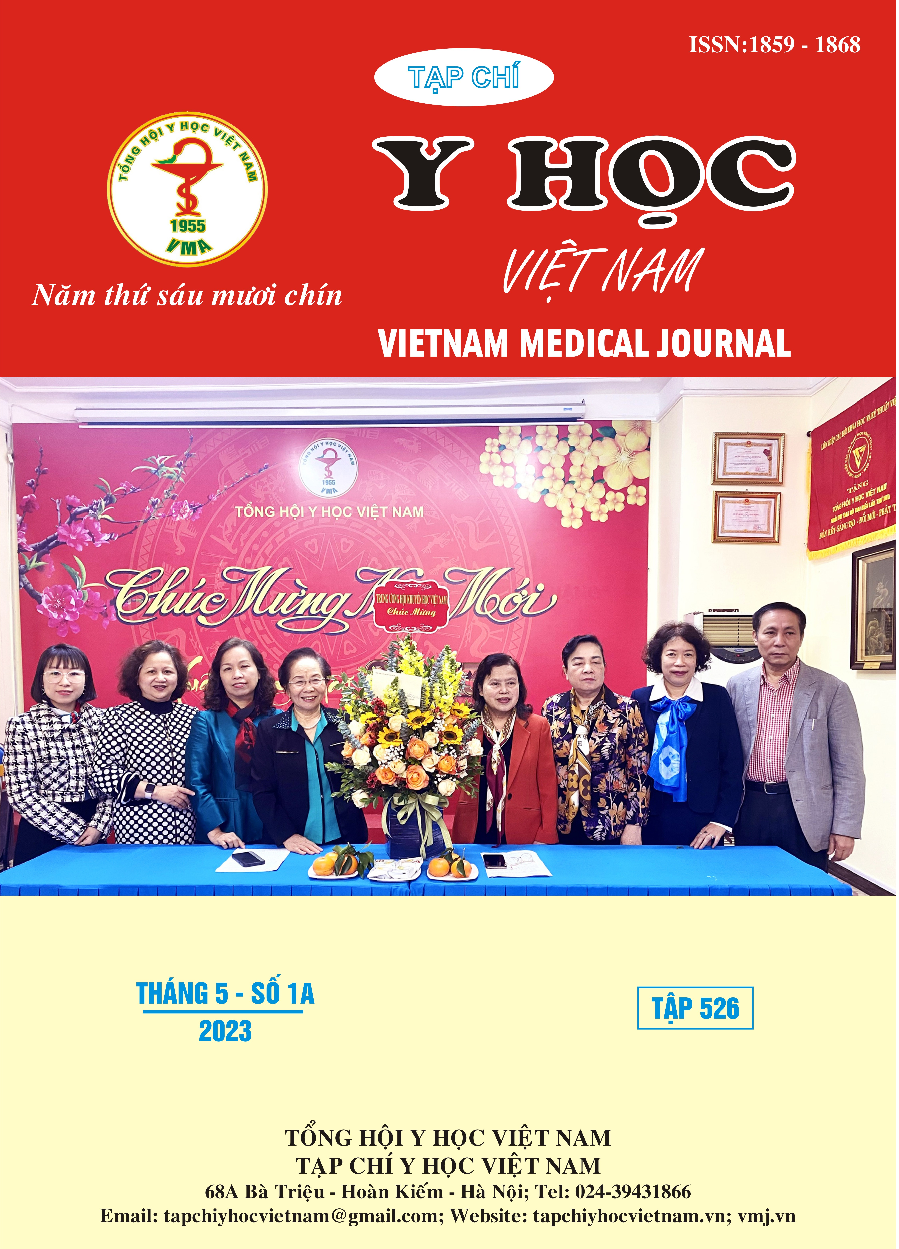RESEARCH ON CHARACTERISTICS OF HORMONE FT3, FT4, TSH AND THYROID MORPHOLOGY IN PATIENTS WITH BIPOLAR DISORDER RELAPSING MANIC EPISODE
Main Article Content
Abstract
Objectives: Characterization of hormone levels FT3, FT4, TSH and thyroid morphology in patients with bipolar disorder relapsing manic episodes. Subjects and methods: Includes 45 patients with confirmed bipolar disorder, current relapse with manic episodes diagnosed according to DSM-5 criteria (2013), inpatient treated at Psychiatric Department, Military Hospital 103 from March 2022 to November 2022. Test the plasma levels of FT3, FT4, TSH hormones and ultrasound to assess thyroid morphology in subjects, analyze the results using SPSS 26.0 software. Results: The average concentration of hormones FT3, FT4, TSH in the plasma of the study group was 3.10 ± 0.53 pg/mL, 0.96 ± 0.14 ng/dL and 1,52 ± 1.31mIU/L respectively. There was no difference in plasma concentrations of the hormones FT3, FT4, and TSH according to age, sex, age of onset, and duration of illness in patients with bipolar disorder relapsing manic episodes. The majority of patients had no changes in thyroid morphology on ultrasound. Conclusions: There was no change in hormone levels and thyroid morphology in patients with bipolar disorder with recurrent manic episodes.
Article Details
Keywords
Bipolar disorder; Thyroid hormones; Thyroid morphology
References
2. Bùi Quang Huy, Cao Tiến Đức, and Đỗ Xuân Tĩnh (2018) Rối loạn cảm xúc lưỡng cực chẩn đoán và điều trị, Nhà xuất bản Y học, Hà Nội.
3. Thomsen A.F., Kvist T.K., Andersen P.K., et al. (2005) Increased risk of affective disorder following hospitalisation with hyperthyroidism - a register-based study. Eur J Endocrinol, 152(4): 535-43.
4. Bauer M., Glenn T., Pilhatsch M., et al. (2014) Gender differences in thyroid system function: relevance to bipolar disorder and its treatment. Bipolar disorders, 16(1): 58-71.
5. Wang X., Luo J., Yuan X., et al. (2022) Relationship of free thyroxine and triiodothyronine on recurrence in maintenance therapy for bipolar depression. Asian Journal of Psychiatry, 71: 1030-1086.
6. Bensenor I.M., Olmos R.D., and Lotufo P.A. (2012) Hypothyroidism in the elderly: diagnosis and management. Clin Interv Aging, 7: 97-111.
7. Nguyễn Văn Linh (2018), Nghiên cứu mối liên quan giữa một số đặc điểm lâm sàng với nồng độ FT3, FT4, TSH ở bệnh nhân rối loạn cảm xúc lưỡng cực giai đoạn hưng cảm, Học viện Quân y.
8. Kraszewska A., Chlopocka-Wozniak M., Abramowicz M., et al. (2015) A cross-sectional study of thyroid function in 66 patients with bipolar disorder receiving lithium for 10-44 years. Bipolar Disord, 17(4): 375-380.


